#Gustav Badin
Text

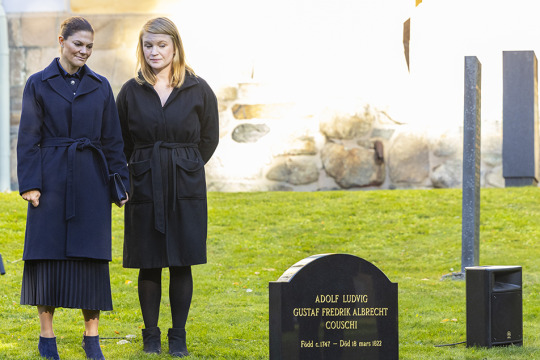

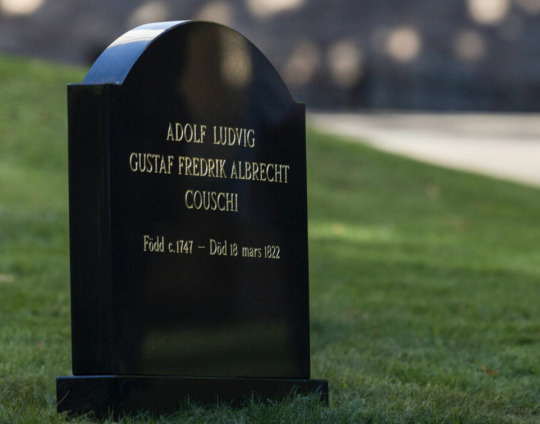
9th October 2023 // Crown Princess Victoria attended the unveiling of a memorial to Adolf Ludvig Gustaf Frederik Albrecht Couschi, known during his lifetime as Gustav Badin. Couschi was enslaved and trafficked from a Danish colony in the West Indies. He was raised in the court of Queen Lovisa Ulrika and became a well known public figure in the late 18th and early 19th century.
9 notes
·
View notes
Text


Through the Years → Victoria, Crown Princess of Sweden (819/∞)
9 October 2023 | The Crown Princess was present at the Katarina cemetery on Södermalm in Stockholm when a memorial stone for Adolf Ludvig Gustav Fredrik Albrecht Couschi, known in his contemporaries as Gustav Badin, was unveiled. (Photo by Michael Campanella/Mikaela Landeström/TT/SPA/Kungahuset)
#Crown Princess Victoria#Sweden#2023#Michael Campanelle#Mikaela Landestrom#TT#SPA#Kungahuset#through the years: Victoria
6 notes
·
View notes
Photo
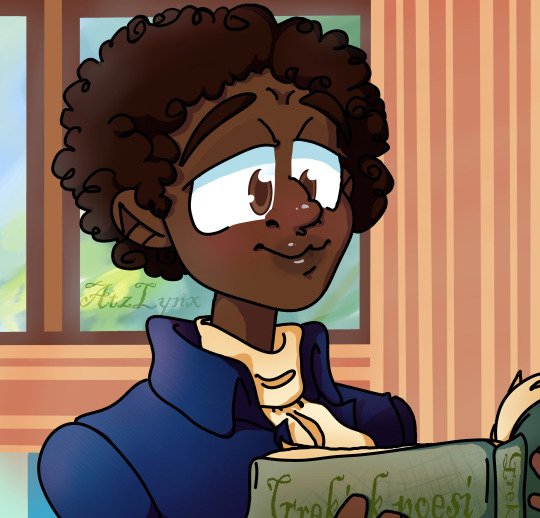
1Prince Adolf Ludvig Gustav Fredrik Albert of Sweden, or his original name: Couchi. Couchi was born 1747 in a Danish colony somewhere in Africa.
His parents died as a result of their home burning down when he was young, and so when he was 10 he was shipped off as a slave to Etastråtet (an old Danish title) “Reiser” who would later give him away to Queen Lovisa Ulrika of Sweden as a present.
Lovisa Ulrika decided to take this “opportunity” (ew) to test if an African could fit in among white people if he was raised like one.
Couchi lived with the royals in Sweden as an assistant to Lovisa Ulrika. She has said that she saw him as the son she never had. (Lovisa Ulrika had three sons already so I- bro) He was called “Badin” by the Swedes, as it meant “Joke, silly, weird, odd”. That is why I prefer to NOT call him that, though you will find that most people in modern day history know him for that name anyway.
He loved reading, which fitted Lovisa Ulrika quite nicely since she herself was a bit of a reader. Couchi was to a lot of support for her after her husband, the king of Sweden’s death. After Lovisa Ulrika’s death, Couchi would go on to serve Lovisa’s daughter Sofia Albertina, who seem to have been very fond of Couchi, with him even writing a poem about her on her birthday.
Though he had been lucky to not be shipped off to work as a farmer slave somewhere, it is very clear that he faced a lot of discrimination through his life. All from his name, to Gustav III calling him “Black man” instead of by his name at times, not even getting the chance of a higher status among the royals despite his hard work and love for languages, books, poetry and theater.
I call him prince because technically, he is. He was adopted by a queen, and so he deserves that title after all that he had been through. Honestly he looks like such a nice guy he’s so cheerful.
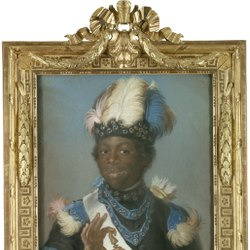
Adolf Ludvig Gustav Fredrik Albert Couchi. 1747-1822
The forgotten prince of Sweden.
#Adolf Ludvig Gustav Fredrik Albert#badin#gustav badin#sverige#swedish#sweden#swedish history#black history#african history#blm#support blm#prince#prince of sweden#art#artwork#artist#cartoony#blacklivesmatter#books#book#painting#paintings#forgotten#queen#king#gustav III#racism#antirasicm
21 notes
·
View notes
Photo

Gustaf Lundberg
Adolf Ludvig Gustav Albert Couschi, about 1747-1822, called Badin
NationalMuseum Sweden (@NatMus_SWE on twitter)
I was helped with one of my holy grails today, and I’m pretty excited about it! I first posted about this work over **four years** ago (lamenting that the only photo of this work I could find was a measly 200X300 pixels and blurry at that), and today on Twitter someone came through for me with a photo of this work-at 2,834 × 3,874 pixels!! It’s been uploaded to Wikimedia commons here.

The man in the portrait is Adolf Ludvig Gustav Albert Badin Couschi (born c. 1747, died 1822). He was butler and foster child to Queen Louisa Ulrika of Sweden, raised alongside the royal children and allowed to do more or less as he pleased. Although he married twice, he never had any legitimate children-there are speculations on possible noble children he may have had but so many of the sources are in Swedish, II can’t really make an informed review of them. He was a poet and an actor, and even after his death inspired others to make him immortal in works of fiction.
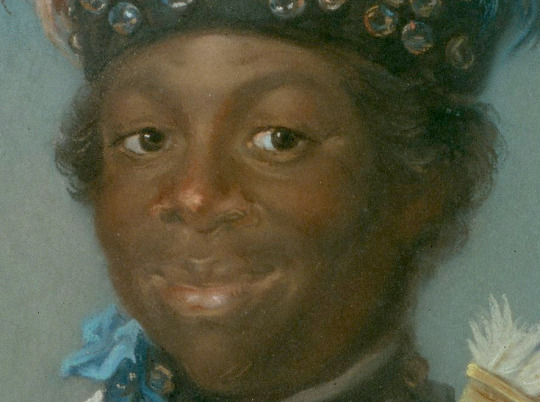
One of the coolest things about this work-it’s not paint. This portrait was done in pastels, by Gustaf Lundberg in 1775. Here’s a direct link to the full-size, framed artwork.
1K notes
·
View notes
Text
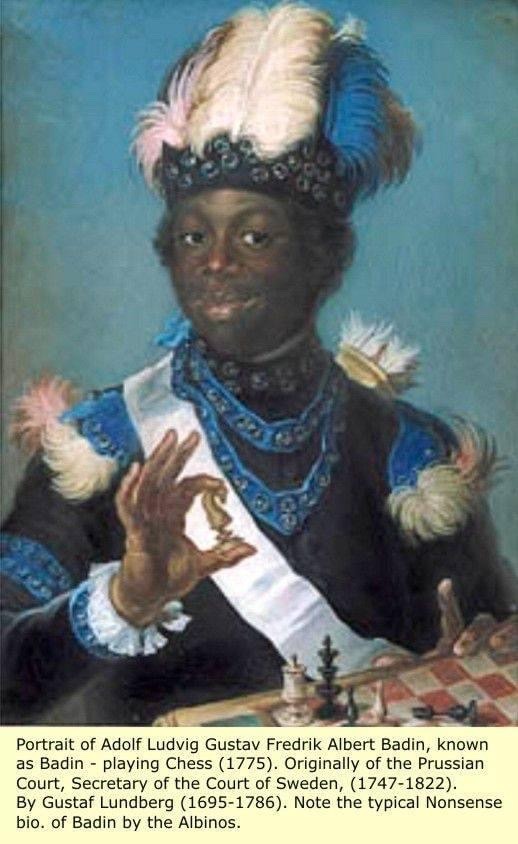
A PORTRAIT OF ADOLF LUDWIG GUSTAV FREDRIK ALBERT BADIN, KNOWN AS BADIN - PLAYING CHESS (1775). HE IS ORIGINALLY OF THE PRUSSIAN COURT, SECRETARY OF THE COURT OF SWEDEN, 1747-1822. PAINTED BY GUSTAF LUNDBERG (1675-1786).
61 notes
·
View notes
Photo

A pair of wine bottle coolers from a service delivered to the comtesse d'Artois in 1789. This service was based on an earlier service commissioned by Marie Antoinette in 1784 and then again later that year as a gift to Gustav III. [source: Pescheteau-Badin, via Auction.fr]
59 notes
·
View notes
Photo
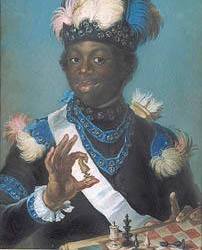
When you play the chess game just right.
Gustav Badin (1750 - 1822), Swedish court secretary and diarist.
1 note
·
View note
Photo

Ever wanted to start reading French authors and French literature, but never knew where to start? Here is a list of major works that are seen as staples of their movement or era for you to start with. 😋 (This is part 2 of 2, it covers literature after the French Revolution.)
Please note that this selection is arbitrary and not exhaustive, and many more authors and works could be included here, but it was necessary to make choices for the sake of providing a relatively brief but comprehensive list. Titles are provided in their original French version to avoid any confusion.
E. Romantism
Les Fleurs du Mal by Charles Baudelaire
Poetry (sonnets and others)
1857
Judged to be scandalous because the author talked about darker subjects, creepy themes or just plain ugly things and glorified them, it is a masterpiece of romantic literature and a very good reference for understanding the movement around the figure of the poet during the 19th century in France.
Méditations poétiques by Alphonse de Lamartine
Poetry (alexandrines and others)
1820
Lamartine’s collection of poems is considered by some to be one of the first major works of romanticism, in the form that it was going to take during the 19th century. His work is a great embodiment of the romantic image of love and nature.
Les Contemplations by Victor Hugo
Poetry (alexandrines and others)
1856
While he is more widely known for his realist success Les Misérables, Hugo’s poetry is strongly aligned with romanticism and exploits its major themes in a deeply personal way, considered autobiographical by most.
La Mare au diable by George Sand
Novel
1846
Don’t be fooled by her pen name, George Sand is a woman. This novel is part of the vogue of pastoral fiction during the 19th century, which is deeply embedded into romanticism by the way it is presented by the author. Lyrical and fantastical, this novel tells the love story of a man trying to break his widowing.
On ne badine pas avec l’amour by Alfred de Musset
Theatre (proverb)
1834
On ne badine pas avec l’amour was meant to be a proverbial play, with a light plot and a moral at the end, but Musset’s love quarrel with George Sand as well as his literary influences of the time brought him to make his play move more and more towards the romantic drama genre. A good example of a romantic influence in an otherwise not so romantic piece.
F. Realism
Le Père Goriot by Honoré de Balzac
Novel
1835
Balzac is the gigantic master of realist literature. His novel depicts the ambitions of Eugène de Rastignac, a young provincial man who came to Paris to study law and decided to pursue a higher social status thanks to his somewhat noble name and the help of Vautrin, a mysterious man living in the same pension as him. Balzac’s care for detail and motivation for every character’s move is clearly laid out in this novel, which is considered by some the foundation of La Comédie humaine.
Germinal by Émile Zola
Novel
1885
Germinal tells the tale of the unjust field of mining work in France during the late 19th century and puts in play a workers’ strike against an unfair company’s practices. But this is just a setting to allow Zola to pursue his novels about an infamous curse that runs in the blood of Étienne Lantier.
Madame Bovary by Gustave Flaubert
Novel
1856
Considered by many to be the masterpiece of classic French literature, Madame Bovary is a novel in which a middle class woman who was dreaming of a better, bourgeois life, lives above her and her husband’s means to trump the ennui, and ends up crumbling in debt, like many people of the time did.
Le Rouge et le Noir by Stendhal
Novel
1830
Stendhal’s novel tells the story of Julien Sorel, a young man who falls in love with someone he doesn’t have the right to love and aspiring to a grandeur far above his means. Like Balzac’s books, Stendhal’s novel shows that everything happens for a reason.
Le Horla by Guy de Maupassant
Short story collection
1887
Guy de Maupassant is one of the first major authors to give a try at the short story form. His tales had a specific structure with a twist at the end and, like Edgar Alan Poe (who he references explicitly in at least one of his stories), often have a sense of eerie and mysticism around them.
A note on romanticism and realism: Since these currents are contemporary during most of the 19th century, all of the authors presented in both currents are more or less influenced by the other, and some of them are associated with the other current for another part of their work. The classification here is more or less arbitrary.
G. Surrealism
Precursors of surrealism:
Les Chants de Maldoror by Comte de Lautréamont
Poetry (prose, long form)
1868
Long forgotten by his contemporary readers, Lautréamont was rediscovered by André Breton and other surrealists and was a major influence to their movement, explicitly cited as one of their masters. The plot of this work is surrealist in many ways and doesn’t have a linear progression. Rather, it is a collection of episodes only held together by the presence of Maldoror, a maleficent man.
Les Mamelles de Tirésias by Guillaume Apollinaire
Theatre (surrealist drama)
1917
This play is a play built on the surrealist model of exaggeration, fooling around with conventions and destroying standards. It is feminist in many ways. Guillaume Apollinaire himself is most well-known for his calligrammes, which are poems written in the shape of a drawing (examples here and here). Apollinaire is also said to be the one to have coined the term “surrealism”. Arthur Rimbaud was a strong inspiration for him.
Du monde entier au coeur du monde by Blaise Cendrars
Poetry (free verse)
1957
This collection of poems is a posthumous collection of nearly all the poems written by Cendrars in his young days. His practice of free verse as well as his use of newspaper cutouts to form poems are part of what makes him a precursor and influence of surrealism.
The Surrealist movement:
Manifeste du surréalisme by André Breton
Manifesto
1924
This text is a detailed explanation of all the ideological tenants of surrealism. Among them, the important value of the subconscious mind, dreams, automatism and automatic writing, and anticonformism should be noted, as they are principles embraced by all the authors associated with the movement. The main ideological belief of surrealism is that the subconscious mind is the ultimate source of aesthetic and artistic truth.
Le Théâtre et son double by Antonin Artaud
Essays
1938
This series of short essays explains the tenants of Theatre of Cruelty as a theatrical form that seeks to break with the norm and solicit all the senses of the audience, to bring it in and engage it in an experience. His theory is heavily influenced by surrealism, although he broke from it earlier.
Exercices de style by Raymond Queneau
Short story
1947
Raymond Queneau was a surrealist in his younger days, but broke from it and ended up forming his own literary association, with the help of François Le Lionnais, the OuLiPo (which stands for Ouvroir de la littérature potentielle, “Opener of potential literature”). The main objective of the OuLiPo is to encourage creativity through formal constraints, hence why Exercices de style, where the same, simple story is re-told 99 times in different ways. (Famous authors of the movement include Georges Perec, author of A Void (La Disparition) and Italo Calvino, amongst others.)
L’Écume des jours by Boris Vian
Novel
1947
Boris Vian’s book draws heavily from surrealist influences in its poetic imagery, being full of incongruous metaphors and figures of speech, with an environment that resonates with the characters’ feelings in ways that go far beyond the usual. Sadly, it did not gain any recognition during the author’s lifetime, but it became one of the most important novels of the 20th century. (Note: I recommend strongly that you read at least some of Jean-Paul Sartre’s works before you read this one.)
H. Existentialism
La Nausée by Jean-Paul Sartre
Novel
1938
A philosophical and somewhat autobiographical novel, La Nausée presents the main tenants of surrealism as they will be found in Sartre’s philosophical essays. It tells the tale of a man taken over by nausea because of the very task of existing. (This philosopher is also known for his close relationship with Simone de Beauvoir.)
La Peste by Albert Camus
Novel
1947
La Peste, just like the author’s most well known book, L’Étranger, seeks to show the absurdity of existence in a city taken over by the plague. It is not without strongly resonating with the rise of Nazism that led the world to WWII.
Rhinocéros by Eugène Ionesco
Theatre (Theatre of the Absurd)
1959
While Eugène Ionesco strongly denies any ties to existentialism or philosophy in his theatre, it’s easy to see the ideological ties between Camus and Sartre’s works, and Ionesco’s plays. Rhinocéros tells the story of a town taken over by an outbreak of a strange illness that turns everyone into rhinos. It can also be seen as a metaphor for the rise of totalitarianism and Nazism that led to WWII.
I. Nouveau Roman
La Jalousie by Alain Robbe-Grillet
Novel
1957
La Jalousie seems on paper to be nothing but an ordinary love triangle, but what makes the Nouveau Roman is not the content of a book but its form. It is written in a non-linear, circular, redundant way, and told by an overly invasive and at the same time totally absent narrator that distorts and shapes the novel to his will.
Détruire, dit-elle by Marguerite Duras
Novel (and movie)
1969
A novel around the strength of desire, Détruire, dit-elle has a minimal action set between four characters, and where destruction becomes the way of self-preservation. The book itself is written more as a collection of fragment than as a long, cohesive story. (Marguerite Duras directed herself a movie based on her book, which came out on the same year.)
Les Fruits d’Or by Nathalie Sarraute
Novel
1963
This novel has no main character. It is a practice of the mise en abyme taken to the extreme, a figure where a fiction contains in itself another fiction, which has characteristics that mirror the first degree of fiction.
La Modification by Michel Butor
Novel
1957
This book has a narrator that speaks with the second person plural, making the figure of its main character confound itself with the reader, and taking the reader on a trip from Paris to Rome and a train trip through the character’s consciousness. The trip itself has an influence on the novel’s structure.
Les Années by Annie Ernaux
Novel
2008
Annie Ernaux’s novel is loosely tied to the Nouveau Roman by her choice of an autobiographic, stream of consciousness telling, but distant from it by the ideological content concerning the rise of consumerism in 20th century France (the Nouveau Roman writers typically distance themselves from any kind of social, political or philosophical commentary).
Note on surrealism, existentialism and Nouveau Roman: During the 20th centuries, very few authors actually followed a program during their whole life, and most of them were influenced on various levels by other movements. Some authors were only included for being influenced by a movement.
This is all for the second part! If you missed the first, you can find it here.
#studyblr#literature#books#french#reading#booklr#bookblr#studyspo#studyspiration#studying#study inspiration#university#bookworm#mine
142 notes
·
View notes
Text
May 30 in Music History
1578 Birth of composer Valentin Dretzel.
1723 Debut of J. S. Bach as cantor at Leipzig's Thomasschule with his first cantata performance in Leipzig. The Cantata No. 75, Die Elenden sollen essen, presented at St. Nicolai Church. The next day was his official induction as Cantor.
1752 FP of Conforto's "Siroe" Madrid.
1776 FP of Jommelli's "Ifigenia in Tauride" Naples.
1790 FP of Paisello's "Zenobia in Palmira" Naples.
1792 Birth of French soprano Marie Sophie Ponchard in Paris.
1795 FP of Dittersdorf's "Gott Mars und der Haupmann von Bärenzahn" singspiel, Oels.
1797 Birth of composer Johann Christian Lobe.
1808 Birth of composer Joaquim Casimiro Jr.
1828 FP of Bellini's "Bianca e Gernando" Naples.
1831 FP of Donizetti's "Francesca di Foix" Opera semiseria, Naples.
1835 Birth of American composer Thomas Martin Towne in Coleraine, VT.
1844 Birth of composer Louis Varney.
1853 Birth of composer Karl Fritjof Valentin.
1860 Birth of Frontini: Francesco Paolo.
1862 Birth of English tenor Charles Courtice Pounds in London.
1865 FP of Faccio's "Amleto" Genoa.
1866 FP of Smetana's The Bartered Bride at the National Opera in Prague.
1871 Birth of Canadian tenor Harry Macdonough.
1883 Birth of English baritone, composer Francis Clive Savill Carey.
1883 Birth of Estonian-American composer and violinist Maurice Henry Goldblatt in Reval.
1893 Birth of Polish-American soprano Rosa Raisa in Bialystok.
1893 FP of Frontini's "Malia" Bologna.
1895 Birth of Hungarian violinist Yelly d'Aranyi in Budapest.
1901 FP of Standford´s "Much Ado about Nothing" London.
1909 Birth of American classical and jazz clarinetist and band leader Benjamin David Goodman aka Benny Goodman in Chicago.
1910 FP of Pierné's "On ne badine pas avec l'amour" Paris.
1912 Birth of Estonian composer and pianist Lydia Auster.
1920 Birth of American bass-baritone George London.
1923 Death of French composer Camille Chevillard in Chatou, aged 63.
1923 FP of Howard Hanson's Nordic Sym No 1, Hanson conducts, in Rome.
1924 FP of Petrauskas' "Egle, Queen of the Snakes" South Boston.
1925 Birth of composer Claude Prey.
1926 Birth of Belgian conductor Edouard Van Remoortel.
1927 FP of Stravinsky's opera-oratorio Oedipus Rex in ballet form. Composer conducts Ballet Russe, at the Sarah Bernhardt Theater in Paris.
1928 Birth of Dutch organist, harpsichordist, conductor, Gustav Leonhardt.
1928 Birth of Opera director Vincent Kelly in Chicago.
1932 Birth of American accordionist and composer Pauline Oliveros, in Houston, TX.
1932 Birth of composer Seppo Antero Yrjonpoika Nummi.
1936 Birth of bass-baritone Mark Vento in Ollioules.
1938 FP of Walter Piston's ballet The Incredible Flutist in Boston, MA.
1940 Birth of soprano and opera director Olivia Stapp.
1941 Birth of Italian soprano Rita Talarico in Rome.
1941 Death of Swedish baritone John Forsell.
1952 Birth of Hungarian pianist Zoltan Kocsis in Budapest.
1952 Death of French soprano Aline Vallandri.
1953 Birth of American composer and harpist Anne LeBaron.
1954 FP of Andre Jolivet´s Symphony No. 1 in Haifa.
1959 Birth of Turkish composer Mehmet Aktug in Istanbul, Turkey.
1962 FP of Benjamin Britten's oratorio War Requiem. Coventry Cathedral in England.
1969 Death of Belgian composer Gaston Brenta in Schaarbeek, Belgium.
1969 Death of tenor Carl Hartmann.
1970 Birth of American violinist Beth Ilana Schneider.
1971 Death of French composer and organist Marcel Dupré.
1989 Death of Croatian soprano Zinka Milanov.
1991 FP of Harrison Birtwistle's opera Gawain at the Royal Opera House, Elgar Howarth conducting, in London.
1998 FP of Melinda Wagner's Concerto for Flute, Strings and Percussion.
2001 Death of Russian composer Nicolai S. Korndorf in Vancouver, Canada
1 note
·
View note
Text
[FN] [HF] The Honorable Gustav Badin and the Unchristian Troll [Part 1]
Classified document S-1517
Type: letter
Stated author: Gustav Badin, addressed to Thomas Paine
Date: 17UU-UU-UU
Thomas, I’m writing to you now of a tale I myself scarcely believe. Perhaps, I feel, if I relay it to you, I might happen upon some clarity for myself. It’s the only thing I can think to do.
On my latest excursion into Norrland , the northern part of Sweden, all seemed to be going well, until a specific night when I was awoken by the most unusual sound. Almost a crunching, the sounds of some great beast that had found a midnight meal. Immediately my mind told me a bear had wandered into our encampment, so I stood, gathered my rifle, and called out for my guide, Klemet. There were only heavy footsteps, on the other side of camp.
I waited and waited so long it became clear that I would be receiving no response from my guide, so rifle in hand I left the tent to attend to him.
I would not find him. Not in one piece, at least.
I looked down at what could only have happened with sinister intent.
My guide Klemet was surely dead, his body strewn before me in several different piles, of the most gruesome nature. I inspected it clearly, I began to believe it could not have been a bear (as so much was present, and had I come across a bear, it would certainly have attacked me to defend such a feast). Not a moment later my fears were realized, as a laugh ran through the clearing where my guide’s remains were found. A laugh such that I have never heard in my life. An actor seeking to portray the cruel mirth of the biblical serpent would kill for a laugh as horrible as what I heard in that forest.
I’m still surprised I was not overtaken with heart spasms from hearing it, for I also saw the shadowy silutes of the thing laughing. This was no bear, even though it would rival any such animal in size. I could not make out details of the ugly misshapen thing, nor did I wish to.
I ran Thomas, I turned and moved my legs as fast as they could. I found my horse, and that of Klement, had been slaughtered as he was, in much the same way.
And so, I resigned to run some more. I knew the route to the nearest village, the one we were planning on reaching at the start of this day. Having set out the route with the guide myself the night before, navigation to this destination was not difficult - for I new the path from our encampment to the village was straight as a gunshot. I also hoped I could manage the distance, seeing as I am a fair runner.
I was able to make it without issues too the village. And now, for a confession. As you are already aware of my explorative nature, my propensity to poke my nose into such oddities of creation, I’m sure you are also aware of where I am going with this. For many months the court has been sitting on a series of rumors, tales of great beasts that roamed the Norrlands - a mythical troll. It was indeed those very rumors that brought myself here. I should note that dear princess Sophia did not ask me to do so, though it was she that inspired my decision. I intended not just to explore the rumors, but if found to be true, to bring her back non-debatable evidence of such. Or, the troll itself.
I know this might sound mad, but I’ve always been of the opinion that there had to be some kernel of truth to fantastical tales out there, and this seemed to be the time and place where such a kernel made itself ready for true men to find it.
When I came to the small town, I ran straight to the biggest street, comforted by the sight of civilization. Not long after a lady approached me, causing me further relief. Although I was glad to see a human, I was not glad at the actions this human decided to take. She pulled from her gown a cross on string, and after marching as close to me as she dared, held it to my forehead and attempted to command the devil out of me using the Lord’s Prayer.
I asked the good lady if there was a matter she needed assistance with, for lack of anything else to say. I was not expecting this that night, and my wits were only barely, though miraculously, intact. It was an odd inquiry I would later think. for me to make of her, me having been the one to come flying into her town in a panic.
Her only response was to speak to the devil apparently in me (which I am so disappointed I’d never been told about).
She cried, YOU DEVIL! BE GONE FROM THIS MAN! BY THE NAME OF JESUS
CHRIST I COMMAND THEE!
I can’t leave any man, I told her, as I was truly alone. Unless she had meant herself, in which case I apologized for the offense of calling her a woman before. She did not respond to me, but merely hollered rather coarsely again for the demon in me to leave.
As a proud protestant and an educated man, I became rather angered that someone was dragging my reputation through the mud, and stated to her as calmly as I could - John 7:24 “Do not judge by appearances, but judge with right judgment”.
She faltered, asking WHAT? Aloud, and I understood her to be hard of hearing, so repeated my answer. She listened carefully, thought about it after, and… resumed her tirade.
I inquired then if there was anything I could do to ensure her I was a man of God. Any biblical matter she’d wish to test me on, or hear me recite myself. I feel it would have been rude to let her do all the chanting.
Thomas, I must make a case here, that although my dear Sweden has not been infested with the same intentful hatred towards the honorable children of Africans that your America has, one must understand that I am probably the only man with black skin that lives within this country - and most locals are thereby dumbstruck by seeing me.
In Stockholm, I am well known. People love speaking of how I was raised in the royal court, a gift to her majesty Louisa Alberta of Sweden as a child. They never tire of repeating the story of how I was freed upon arrival to her palace, slavery being outlawed in noble Sweden. It titillates them to talk about how I was aised alongside the royal children, as a way for the Queen to test the theories of Roseau. Despite the sensational nature of said story, it rarely travels far beyond Stockholm. And people in the rest of Sweden don’t know what to make of me.
It might be the lack of slavery here that does it, ironically, since the common person here has yet to see a morian due to us not being imported as bond-servant, and though they know people with my appearance exist, some are apparently incapable of recognizing me for what I am when confronted with the reality.
I tried to explain, I did, to the woman that I was simply a man possessing skin of another color. I believe she did recognize the word morian, as her eyes narrowed, and it seemed she conversed with me for the first time. She asked me if I was one of the Muhammadans, to which I replied that I was not. I was a Christian, through and through. As a more righteous mirror image of Peters' weakest moment, I confessed my servitude to Christ before her three times (mostly due to her poor hearing necessitating several iterations).
She took a step back and pondered, and I turned to peek ever so carefully back to the woods. It was then she saw she might have been mistaken in her initial assessment of me, thankfully. And looked back to see me eyeing the woods.
She asked me then - Are you running from something? And that’s when, Thomas my wits faltered once more. I was shaking before, though I’d calmed in my dealings with this woman. But now, it brought it all back, and I shook once more. I told her that I believed I had an encounter with a mystical creature, not quite diverging exactly what I knew it to be.
She nodded then, and sighed, and though she did not trust me still from that point on, she did very sternly motion for me to follow her, walking ahead of me all the way down the street and to the local spot of drink, a splendid pub which I was entirely glad to be in, though suddenly became concerned with my disheveled appearance. I had fallen asleep in pants and shirt, luckily for me, though had no coat, I lacked money (left behind in the heat of the moment). Carrying nothing I should have on my persons for a visit to a place such as this- or a visit anywhere. For I was still in my night-clothes, as they were to me.
Venturing into a public place without proper attire would be a blister on my status as a gentleman. I could only hope that the local rumor mills would not have the strength to carry news of my transgressions back to Stockholm.
The building was large and stone. A fire-eater hung from the ceiling in the center of the room. He filled his mouth with flammable liquid, and then spat out fire with great skill. I looked to my companion with an eyebrow raised. She informed me, rather unconcernedly, that he���d been with a circus as they usually were, but after a dispute with the crew was left behind during their journey to Norrland seeking to buy wild animals. He now worked as a farmhand in the town, and performed for them in the pub to gain additional income.
On her initiative, I was given a drink at the ladies' expense. I took this as an apology from her, which lightened my heart and made me view the woman, who gave me her first name only, with a much fonder outlook.
Behind the bar stood one man, pouring drinks for guests, and another young woman, pulling on some sort of contraption controlling a chain. My gaze followed the chains to the fire eater in the center of the room and realized the girl maneuvered the height and movement of the acrobat as he hung from the ceiling. She was attractive, with light blond hair and deep blue eyes.
It was then, my new friend Lisa told me that her previous behavior was due to nerves as shaken as mine appeared to be. And from troll sightings as well nonetheless. It took me off guard, as I had yet to mention specifically the creature I had narrowly escaped from. But now, in finding our belief about the matter to be so on-par, it gave me a sense of comradery with the good lady.
When the performer seemed to have finished his task, the young woman was allowed to let go of the contraption and went about entertaining or serving the drunken men of the tavern (there were four seated together not far from the bar itself). Judging by how she went around, I thought perhaps she might have been a pleasure girl, though my honor hindered me from putting words to such speculations (and I beg of you Thomas to never quote me on the matter). Lisa introduced me to the young woman, as her daughter of eighteen years. Lisa would soon give me a queer and dreadful bit of information, as I’d moved the conversation back onto the troll at hand (a difficult task as her hearing kept me repeating myself in the conversation).
Since coming there I noticed that the town had been unusually quiet, no sound of people frolicking or children playing. The four men sitting drunk at the table were definitely drowning some sort of sorrow. I could tell from their eyes, the way they barely noticed the young blond almost blatantly flirting with them, which I now viewed as more of a crusade to raise their spirits. Very noble of her indeed.
Lisa said that the troll had been plaguing the village for some time, and that it was a godsend that her daughter had seen her eighteenth birthday come and go. Because that meant she was safe. Further inquiry revealed to me that the creature had taken all the children of the settlement back to his cave (we Swedes refer to such kidnappings by trolls, elves, and giants as bergstagning). Not a single child was left!
It was believed the children lived still, that the troll kept them in his den, and ate them during the next full moon. As part of a ritualistic meal the monster took part of once every human generation. The next full moon Thomas, was not two days away!
Thomas, it was horrific, hearing of this dreadful state of affairs not fit for a civilized Christian nation. My heart truly went out to these people, and most importantly, the children. I had not so directly faced it, though I did witness what the beast did to Klement, not to mention our horses. And I too was probably taken as a child by a (human) kidnapper before being sold as a slave, though honestly, I remember nothing of my home before Sweden other than that the house I used to live in was burnt to the ground.
I asked Lisa when and how the rescue quest for the little ones would take place, and I know you’ll believe me when I say I fully intended to take part in it. Until she told me that there would be no rescue for them in the future, as the men of the village had already attempted and failed to save the children. All the men worthy of their manhood had gone to face the troll, and most had not come back.
The time for talking was over, real men are defined by their actions! I stood, marching over to the drunken men with purpose. If they would not, then I would. Though I would still need a guide. Or four.
I asked about the mission to save the children, and they told me. Hearing it from their mouths, I was far more empathetic with their current decision. The story they told was not dissimilar to what happened to Klement. I am not a fool, I asked straight away what price they would put on such an excursion. That price was zero, as there was no possible chance they would take it on. I gave them a price myself, and told them that although I didn't have the money on me at the moment, having lost my pouch in the fray of my own narrow troll escape, I would be good for it, as I owned several successful farms. They would have to trust my word for the moment, but I would definitely return and pay them handsomely. Rest assured I am no swindler, even for a cause as this.
These men then showed me great level off rudeness, they implied that my promise of future compensation was nothing other than empty words. Accosted I was, that very moment, by a young blond woman spoken of previously. She held my hand in hers and walked me to the far wall, backed against it as she began to speak. It seemed highly indecent as if I’d pushed her to the wall in some way. Her eyes were bright, and her arms folded over her chest, though she leaned forward and close to me in a way I don’t think I’ve ever been close to a woman before, thanks be to the lord.
She was going to flirt, I know this, but I didn’t let her speak at all. I would not have anyone even in that pub alone, see me partake in it, and I worried that being in that position for even a moment would be seen as compliance. Or worse, enjoyment. If my old priest in Stockholm had seen me holding hands with an unmarried women, what would he think of me!
I told her I would not like to be in physical contact with a woman I did not know, and that she should cast out all romantic notions of me. My statement was followed by a quote of the bible, 2 Timothy 2:22 "Flee the evil desires of youth and pursue righteousness, faith, love and peace, along with those who call on the LORD out of a pure heart”.
I’d assumed I’d nipped the situation, when I turned and walked away, making sure my face read the irritation I was feeling. But, upon returning to the men, her hand was once again upon me, on my arm, with her closest arm around my shoulder, as if presenting a close friend to the men at the table.
She told them I was worthy of their trust, stating she knew I would be good for my word, though, if it helped, she would stake her claim with mine, and should I not give payment afterwards, they could… take… it from her. That term disturbed me, and I fear we were all in agreement that she meant a payment of a more carnal nature. By my honor, I swore to myself that I never allow her to pay the debt in my place! I would return here with payment, even if it was the last thing I did.
The men agreed then, almost to my dismay, though the idea of the horrors the children could endure, being eaten alive, played in my head and stopped me from wanting to tinker with the agreement after it had been made.
And with that, I went to speak to Lisa, and tell her the good news of the new rescue mission for the children, making sure to omit Ulla’s (as I’d come to know the young woman to be called) part in the matter. She was joyous, and offered me to spend the rest of the night resting at her very own house, something about the daylight being the best time to deal with troll matters. Ulla, who had followed me over to her mother, was ecstatic by the idea. I assumed she might have been, seeing as how she apparently hadn’t heard my earlier reprimand regarding her temptress like behavior.
Lisa walked in front of me again, when we were finished at the pub not a minute later. She lead me to her house, yet on the way Ulla was the only one that spoke to me, hanging back and walking beside me. She carried a slight smile the entire time, as if completely unaware the turmoil her home was currently facing. When she tried to take my arm, I pulled it from her grasp and asked if I needed to repeatmy earlier proclamation.
I just thought I was doing what you asked.
She actually said to me, looking up at me.
I’m pursuing love, and pursuing a man who ‘calls on the LORD out of a pure heart.
Which I think you fit the bill for.
I made a mental note to have my hand re-blessed the next time I meet a man of the cloth. I expressed to her that touching a women’s bare skin, her hand nonetheless, without first discussing the matter with her father, a priest and praying on the issue - felt like the type of uncivilized behavior one would expect to find amongst Catholics!
She shrugged and let the matter be, for then. At her house I met her father, which was disconcerting. I could do so with my head held high, you’ll understand, as I was also prepared to do whatever it took to act honorably. And didn’t have intentions towards his daughter as it so happened.
In the morning-time I was joined by the four men, in much more a sober nature, yet still as somber as I recalled them being. I took with me only supplies that Lisa and her family, by last name of Marklund, had loaned or given me for use.
The day turned muggy as the men and I made our way up the mountain, I had carried my rifle with me from my encampment, and had it with me now, though I didn’t think it would do much good.
My new guides explained to me that the troll was offended by sunlight, that it burnt. I myself had learned of this before coming on the mission originally. Some legends stated that sunlight made trolls swell until they exploded, other legends said they were turned into stone. It wasn’t long after that, that we were in sight of the cave. I instructed the men to get down low, his somewhere around the side. To be as quite as they could, and only speak in a whisper.
I had an idea, when I was told of their aversion to sunlight, that perhaps, with some highly reflective material, we could direct the sunlight inwards, but not only did I not know if or where I would find such a thing, it would most likely take longer than I was comfortable taking to acquire it. Plus, the day was muggy as previously mentioned, and the sky was filled with white clouds that hid the sun.
Apart from my rifle, I was handed a sword, something on loan to me from one of the other men (it had belonged to a villager, who had died fighting the troll not days before). I had great respect for it and hoped to give it a chance to avenge its previous master.
We lit four torches and entered the enormous cavern. One man, tall and could easily be mistaken for a troll himself, told me that legend had it the troll had dug the caves himself, with his own two hands.
We walked straight, moving more quietly, and more slowly, the further into the caves we got. Still, no sign of the troll, though I did notice how the walls seemed to have deep rivets in them. Like finger marks when dug.
Behind me, a sound, I turned to see what it was. The others turned with me, though I didn’t know if they too had heard what I did, or if it was merely a reaction to my movement.
We began walking back the way we had come, trying to discern if there was something there. After a moment of finding nothing, I turned back around and made to nod reassuringly to my three comrades that the coast was clear. Somehow the cave seemed a lot darker than before.
Three?
There were only three men with me now Thomas, and with horror, I knew immediately that one man had already joined Klement. His torch had not been extinguished but lay tilted upwards on a rock where it burned weakly. The monster had been precise enough to grab the poor fellow without killing the flame, seemingly to make his disappearance easier to miss. And the chap hadn't even managed to give out a sound to warn his brothers in arm. According to Swedish legends, some races of trolls are as crafty as foxes - in that cave I feared these myths might be understating the matter.
I turned to view one of the other men, due to him having walked around my side. I wanted to keep them all in my line of vision simultaneously if possible, but searching for him I heard only a gurgling sound and noticed another light source die as I realized he had already disappeared. There were two men now, and we stood together as if forming a line for battle.
I whispered a plan, to back against a wall together, and draw out the great beast. But my words, I feared and feared correctly, fell on ears not willing to listen. They seemed almost frozen, unmoving.
Move! I ordered them. And nothing.
Then I noticed, that both my remaining companions were staring upwards. I did so myself.
Mother of mercy, I’ll never forget the sight, Thomas. I saw the troll, Thomas. I saw it as clearly as I see the letters I’m penning. I’d like to warn you, that all I have to say of the site will be in the next paragraph, so you might skip it, and I recommend you do. You can not forget what you will read, and perhaps be cursed with nightmares due to it. If I could help myself I would not write it, but I to tell my tale in some manner, in hopes I find some peace with it.
The beast was atrocious. Having an asymmetrical and enormous bulging face, with arms longer than they should be for any living thing. It looked sick yet strong at the same time, deformed yet perfectly shaped for the purpose of killing. Vulgar dissidents sometimes depict the royal families of Europe as malformed through incest, gravely exaggerating family physical peculiarities into monstrous features. This thing would make even the cruelest and most unrealistic satirical drawing of incest seem kind and modest. Its naked body was uneven and grotesque, a small third arm sticking out from its side, the tail of the thing ended in a ball of hair. Its hair was long and spindly, it watched us with manic excitement.
My heart stopped in my chest, my blood stopped in my veins, and my stomach turned over and threatened to release my breakfast.
submitted by /u/GeAlltidUpp
[link] [comments]
via Blogger https://ift.tt/2BgFSpZ
0 notes
Text
Pack Romans 46 Livres anciens aux formats Word avec droit de revente
Pack Romans: 46 Livres anciens aux formats Word
Roman, Novelle, Fantastique, Littératures
-Les manuscrits sont mis en forme aux formats Docx de Microsoft Word (table des matières active, titres, chapitres, paragraphes, sauts de page …) et prêt à être transformer en ePub et Mobi-kindel ebooks.
-Les pages ne comportent aucun lien, aucune publicité et aucun copyright.
Tous ces titres sont vendus en droit libres, personnalisable sans aucune condition & sans aucune limite, et que vous pouvez devenir ainsi vendeur à vie et sans réserve de vos PROPRES EBOOKS !
*Pour votre travail, vos études, votre site ou blog..
*Pour faire des cadeaux à vos clients
*Pour les vendre sur les plates formes d’autoédition
Titres et Auteurs:
. A-lombre-des-jeunes-filles-en-Marcel-Proust
. A-Rebours-Joris-Karl-Huysmans
. Anna-Karenine-Tome-I-Lev-Nikolayevich-Tolstoy
. Au-Bonheur-des-Dames-Emile-Zola
. Bouvard et Pecuchet - Gustave Flaubert
. C'etait ainsi- Cyriel Buysse
. Cinq nouvelles extraordinaires - Gustave Le Rouge
. Claude-Gueux-Victor-Hugo
. Cosette-Victor-Hugo
. Crime-et-chatiment-Fyodor-Mikhailovich-Dostoyevsky
. Jane-Eyre-ou-Les-Memoires-dune-Charlotte-Bronte
. La-Bete-Humaine-Emile-Zola
. La-Conquete-de-Plassans-Emile-Zola
. La-Curee-Emile-Zola
. La-Faute-de-labbe-Mouret-Emile-Zola
. La-Fortune-des-Rougon-Emile-Zola
. La-Joie-de-vivre-Emile-Zola
. La-Prisonniere-Marcel-Proust
. LArgent-Emile-Zola
. LAssommoir-Emile-Zola
. Le-Cote-de-Guermantes-Marcel-Proust
. Le-Grand-Meaulnes-Alain-Fournier.
. Le-Pere-Goriot-Honore-de-Balzac
. Le-Retour-de-Linou-Francois-Fabie
. Le-Reve-Emile-Zola
. Le-Rouge-et-le-Noir-Stendhal
. Le-Temps-retrouve-Marcel-Proust
. Le Ventre de Paris - Emile Zola
. LEducation-Sentimentale-Gustave-Flaubert
. LEffrayante-aventure-Jules-Lermina
. Les ames mortes - Nikolai Gogol
. Les-Freres-Karamazov-Fyodor-Mikhailovich-Dostoyevsky
. LEsclave-amoureuse-Gustave-Le-Rouge
. Lidylle-rue-Plumet-et-lepopee-Victor-Hugo
. LIllustre-Maurin-Jean-Aicard.
. Madame-Bovary-Gustave-Flaubert
. Moll-Flanders-Daniel-Defoe
. Moulins d'autrefois - Francois Fabie
. Nana - Emile Zola
. Notre-Dame de Paris - 1482 - Victor Hugo
. Pierre-et-Jean-Guy-de-Maupassant
. Roger-la-Honte-Jules-Mary
. Souvenirs-de-la-maison-des-mort-Fyodor-Mikhailovich-Dostoyevsky
. Therese-Raquin-Emile-Zola
. Un-blesse-Adolphe-Badin
. Une page d'amour - Emile Zola
Vous pouvez payer avec votre carte de crédit si vous n’avez pas de compte PayPal
Read the full article
0 notes
Text
Tweeted
Just Pinned to BIBLE: "Portrait of Gustav Badin" (1775) by Gustaf Lundberg https://t.co/Hd7LRUKMl5 pic.twitter.com/9DmewvaxOJ
— Jesse Ben Israel (@jessebenisrael) August 6, 2018
0 notes
Photo
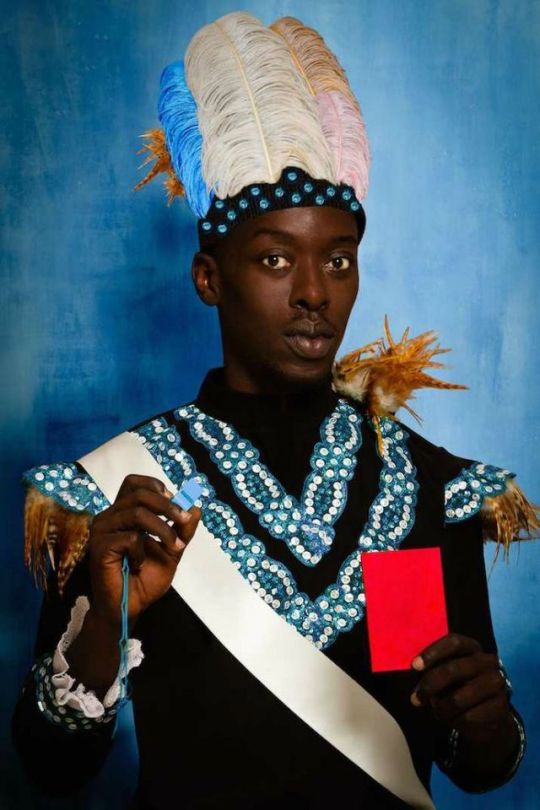
Albert Badin (Diaspora) - Omar Victor Diop (Senegal)
Gustav Badin born Couchi (1747 or 1750 - 1822), originally slave and butler of Queen Louisa Urika of Sweden. Poem writer and ballet dancer.
-
Gustav Badin (1747 ou 1750 - 1822) est né sous le nom Couchi en Afrique ou sur une île danoise nommée Saint Croix (actuelles Iles Vierges américaines), il a été l’esclave et le servant de la reine de Suède Louisa de Prusse puis de sa fille Sophia Albertina. Cette dernière lui a appris à lire, à écrire, l’a converti au christianisme afin de tester les théories du “bon sauvage” de Rousseau. Gustav Badin a été élevé avec les enfants de la reine, fut baptisé et devint même le confident de la famille royale tout en gardant son statut de serviteur. Un homme noir ne pouvait atteindre un titre de la noblesse suédoise. Gustav Badin a écrit des poèmes, participé en tant que danseur de ballet aux pièces de la troupe française Du Londel. Il était connu aussi pour sa collection de livres (plus de 900 ouvrages) notamment en Fraançais (langue de la bourgeoisie, de la diplomatie à l’époque).
0 notes
Photo
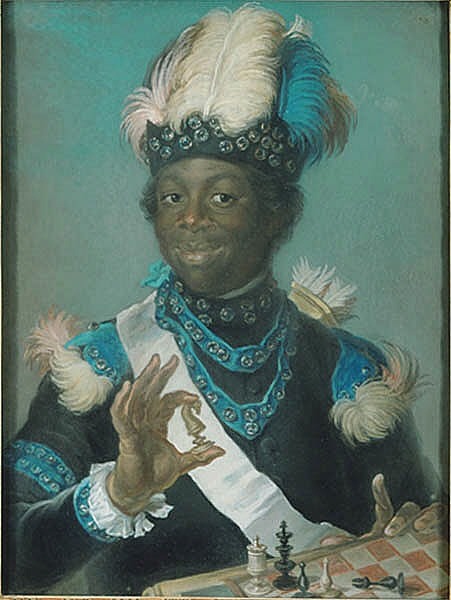
(The painting was done in 1775 by Gustaf Lundberg and is located in Gripsholm Castle. My primary source for this post is good ol’ Wikipedia)
Adolf Ludvig Gustav Albert Couschi, more commonly known as Badin was most likely born in Saint Croix around 1747. In 1757 he was given as a present to the Swedish queen consort Lovisa Ulrika.
The queen decided to make him an experiment in upbringing; she was interested in science and had founded a science academy, where, among other topics, the origin of man and civilisation was discussed, such as the nature of "savages", the noble savage and the natural human, and in Badin, she saw an opportunity to test the theories of Rousseau and Linné.
She instructed him in Christianity and taught him to read and write, but after this, he was allowed to live entirely according to his own will and judgement. He grew up as a playmate of the children in the royal family, who were brought up in a much more restricted way than he was, and was allowed to speak to them in a natural way and even fight and tease them, which was considered scandalous. He knew all the secret passages within the royal castles and, as it was said, all the secrets within its walls. Contemporary diaries describe how he climbed on the chairs of the king and queen, called everyone "you" instead of using their titles, talked rudely to the nobility and ridiculed religion when interrogated about the bible by Countess Brahe, which made everyone laugh; he was very witty and verbal. His modern, free upbringing didn’t quite work in the long run however; as a result, it became more structured.
The relationship with his royal foster-siblings was described as good, even though he called King Gustav "Gustav you rapscallion" and Duke Fredrik "Mr Tobacco". He was closest to his foster-sister, Sophia Albertina, and wrote a poem for her on her eleventh birthday in 1764: "I, one of the Black People, unfamiliar with this country's customs, make a wish from my heart, to our Princess too. What do I wish? For her to become many more ages still." The two would remain close for the rest of their long lives.
Badin was married twice but died childless; the rumors that he was the father of the alleged secret daughter of Sophia Albertina have never been confirmed. He married Elisabet Svart (d. 1798) in 1782 and Magdalena Eleonora Norell in 1799.
The social position of Badin was not quite clear; he was given several titles, such as chamberlain, court secretary, ballet master and official; he never used the title "official", which King Gustav gave him, and told him; "Have you ever seen a black official?", but preferred to call himself farmer, as he owned two farms.
He was described as an intelligent and reliable person with self-confidence, and though he was informed about many of the secrets of the royal family and the court, he never revealed anything, and was very loyal to the royal house throughout his entire life. His diaries, written in French, are preserved in the library of the Uppsala University.
He died in 1822 and was deeply mourned by his beloved Princess, who was the only member of the old royal family that was still alive.
26 notes
·
View notes
Text
De första svarta i Sverige och en felaktig historieskrivning
De första svarta i Sverige och en felaktig historieskrivning
0 notes
Text
Pack Romans 46 Livres anciens aux formats Word avec droit de revente
Pack Romans: 46 Livres anciens aux formats Word
Roman, Novelle, Fantastique, Littératures
-Les manuscrits sont mis en forme aux formats Docx de Microsoft Word (table des matières active, titres, chapitres, paragraphes, sauts de page …) et prêt à être transformer en ePub et Mobi-kindel ebooks.
-Les pages ne comportent aucun lien, aucune publicité et aucun copyright.
Tous ces titres sont vendus en droit libres, personnalisable sans aucune condition & sans aucune limite, et que vous pouvez devenir ainsi vendeur à vie et sans réserve de vos PROPRES EBOOKS !
*Pour votre travail, vos études, votre site ou blog..
*Pour faire des cadeaux à vos clients
*Pour les vendre sur les plates formes d’autoédition
Titres et Auteurs:
. A-lombre-des-jeunes-filles-en-Marcel-Proust
. A-Rebours-Joris-Karl-Huysmans
. Anna-Karenine-Tome-I-Lev-Nikolayevich-Tolstoy
. Au-Bonheur-des-Dames-Emile-Zola
. Bouvard et Pecuchet - Gustave Flaubert
. C'etait ainsi- Cyriel Buysse
. Cinq nouvelles extraordinaires - Gustave Le Rouge
. Claude-Gueux-Victor-Hugo
. Cosette-Victor-Hugo
. Crime-et-chatiment-Fyodor-Mikhailovich-Dostoyevsky
. Jane-Eyre-ou-Les-Memoires-dune-Charlotte-Bronte
. La-Bete-Humaine-Emile-Zola
. La-Conquete-de-Plassans-Emile-Zola
. La-Curee-Emile-Zola
. La-Faute-de-labbe-Mouret-Emile-Zola
. La-Fortune-des-Rougon-Emile-Zola
. La-Joie-de-vivre-Emile-Zola
. La-Prisonniere-Marcel-Proust
. LArgent-Emile-Zola
. LAssommoir-Emile-Zola
. Le-Cote-de-Guermantes-Marcel-Proust
. Le-Grand-Meaulnes-Alain-Fournier.
. Le-Pere-Goriot-Honore-de-Balzac
. Le-Retour-de-Linou-Francois-Fabie
. Le-Reve-Emile-Zola
. Le-Rouge-et-le-Noir-Stendhal
. Le-Temps-retrouve-Marcel-Proust
. Le Ventre de Paris - Emile Zola
. LEducation-Sentimentale-Gustave-Flaubert
. LEffrayante-aventure-Jules-Lermina
. Les ames mortes - Nikolai Gogol
. Les-Freres-Karamazov-Fyodor-Mikhailovich-Dostoyevsky
. LEsclave-amoureuse-Gustave-Le-Rouge
. Lidylle-rue-Plumet-et-lepopee-Victor-Hugo
. LIllustre-Maurin-Jean-Aicard.
. Madame-Bovary-Gustave-Flaubert
. Moll-Flanders-Daniel-Defoe
. Moulins d'autrefois - Francois Fabie
. Nana - Emile Zola
. Notre-Dame de Paris - 1482 - Victor Hugo
. Pierre-et-Jean-Guy-de-Maupassant
. Roger-la-Honte-Jules-Mary
. Souvenirs-de-la-maison-des-mort-Fyodor-Mikhailovich-Dostoyevsky
. Therese-Raquin-Emile-Zola
. Un-blesse-Adolphe-Badin
. Une page d'amour - Emile Zola
Vous pouvez payer avec votre carte de crédit si vous n’avez pas de compte PayPal
Read the full article
0 notes